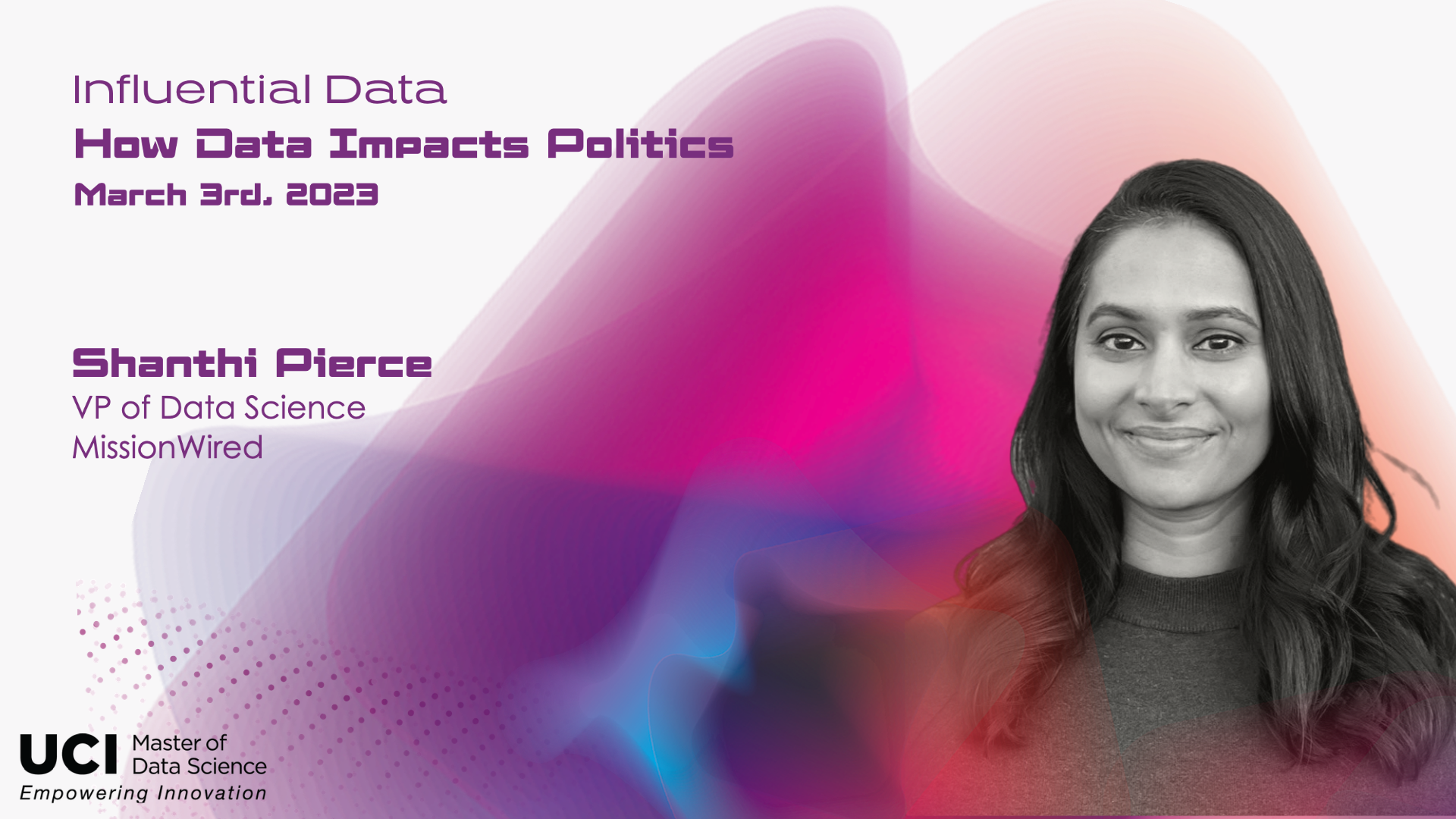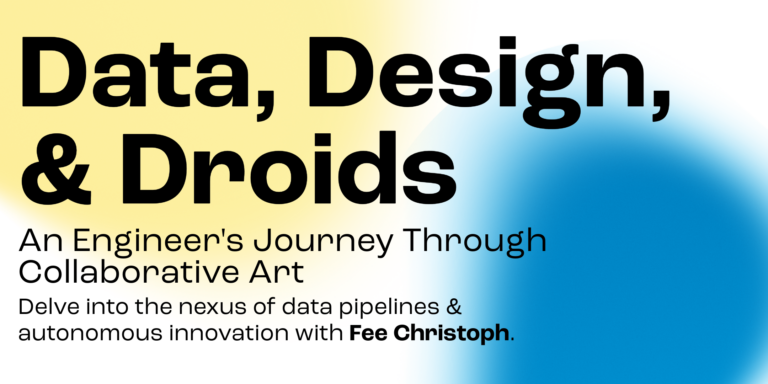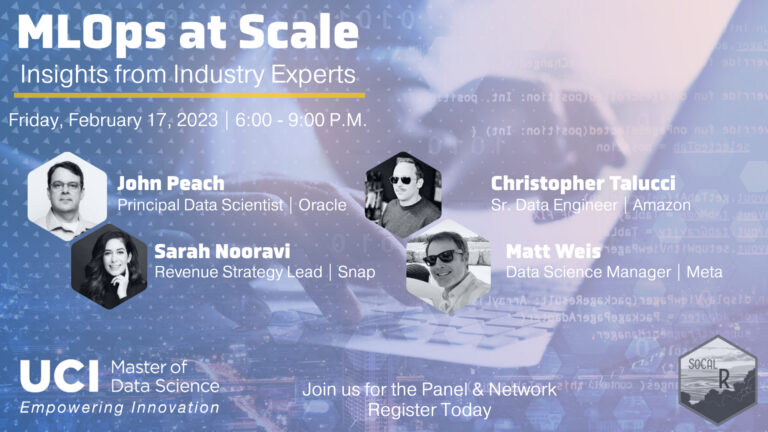March 29, 2023
UCI’s Master of Data Science (MDS) Program invited Shanthi Pierce, vice president of data science of political fundraising agency MissionWired, to lead the discussion “Influential Data: How Data Impacts Politics” on March 3. The event focused on how data affects decision-making in politics and the ethics of using data in a political context.
Pierce has a master’s degree in international development from Harvard University. She volunteered with the U.S. Peace Corps in Lesotho, South Africa, and worked for domestic nonprofits and companies that support the government. Some of the organizations and companies she was at prior to MissionWired include the New Hampshire Democratic Party, Deloitte and Alteryx.
She first talked about her experience as the director of data and analytics for the New Hampshire Democratic Party and how she used data to give the party a competitive edge during the 2016 election cycle.
“The data that we had available to us was the state voter file,” Pierce said. “There is a ton of modeling that’s done on top of that data to try to predict what’s the likelihood somebody is to support a candidate, what’s the likelihood they are to donate to your campaign, what’s the likelihood that they will volunteer for your campaign.”
This data drives decision-making: when the party is planning an event, they do geographical targeting first to see which voters are nearby. Within geographical targeting, they look at the data that describes the different audiences among voters to determine which people are the best to invite to their event.
Pierce’s current company MissionWired uses data in a similar way. The goal of MissionWired is to use data to help raise money for political candidates and progressive non-profits.
“We will help candidates and nonprofits figure out how to optimize their current lists and how to gain additional people to start reaching out to for fundraising,” Pierce said.
Another topic of discussion was the ethics and responsibilities of using data in a political context. Pierce mentioned that security and privacy are important when working with consumers’ data.
“A lot of [ethics in data] has to do with whether people know what their data is being used for and are they OK with that,” Pierce said. “There are laws around these things and they are constantly evolving. So I think a big part of the job is to act in the spirit of the law and anticipate where it’s going by putting yourselves in other people’s shoes and saying, ‘Would they be OK with what’s happening?’”
Broadly, data in politics is used to drive outcomes in campaign outreach, fundraising and polling. According to Pierce, data “always comes in so messy” and a large portion of her work has been organizing and standardizing data so it can be used. Once the data is cleaned up, she advised that one of the most valuable things you can do is to talk with experts in your team or organization about what information should be highlighted.
Pierce also provided tips for communicating data to stakeholders and making it understandable to a non-technical audience. One tool she likes to use is Tableau for data visualization, adding that using a branded color scheme and making your visualization clean are both good techniques.
“I think it’s fun to try to play around with visualizations and see what makes the point you’re trying to make pop. Is it a bar chart? Is it a line chart? Is it a stacked bar chart? Data will tell a different story if it’s visualized in different ways,” Pierce said. “You want to tell the story that answers that [stakeholder’s] question.”
The discussion concluded with Pierce sharing advice to students and new graduates on how to navigate their professional careers.
“Anytime you are tangentially involved in something that you don’t know, go and learn it,” Pierce said. “I think that every job has something to give you. It doesn’t have to be the place you’re going to be forever.”
— Karen Phan





